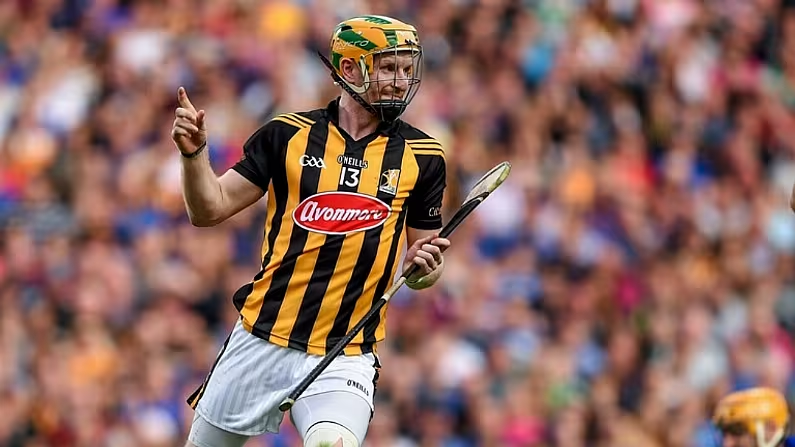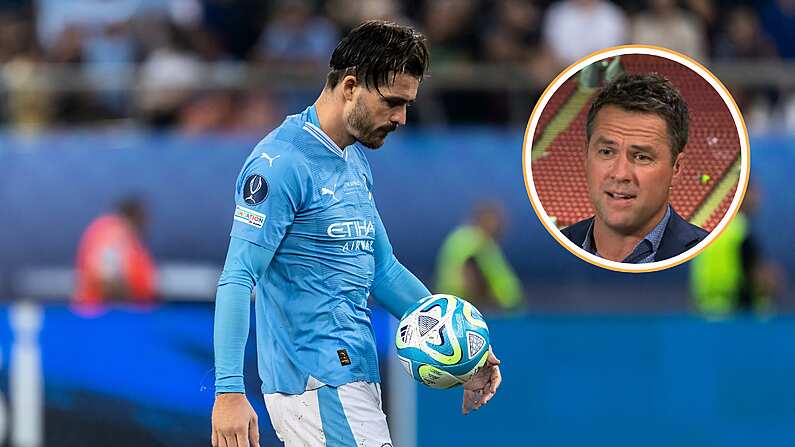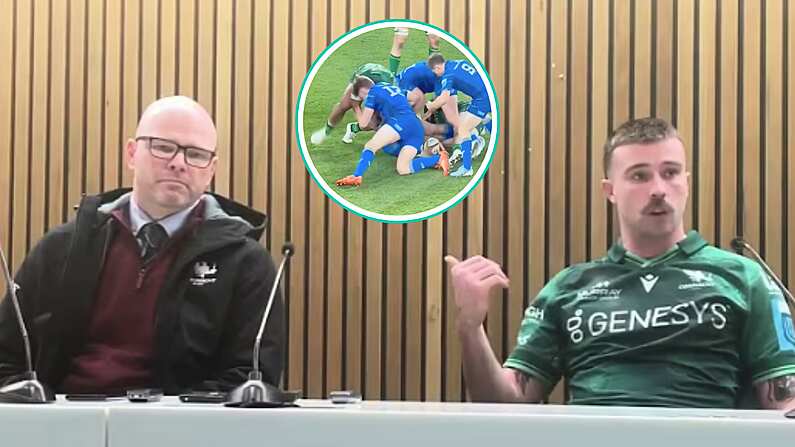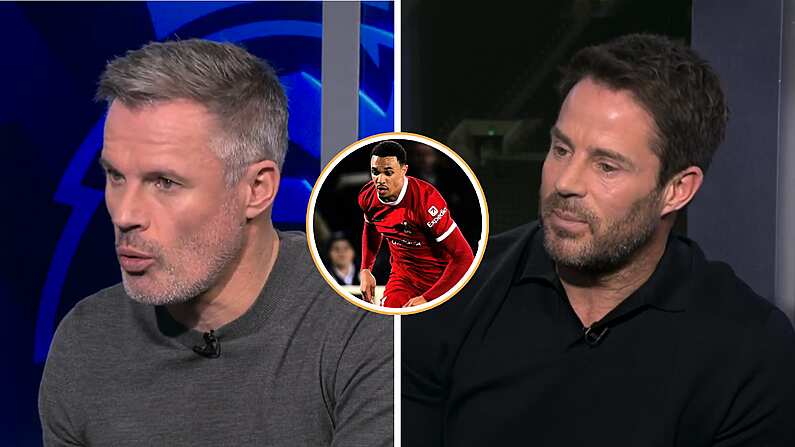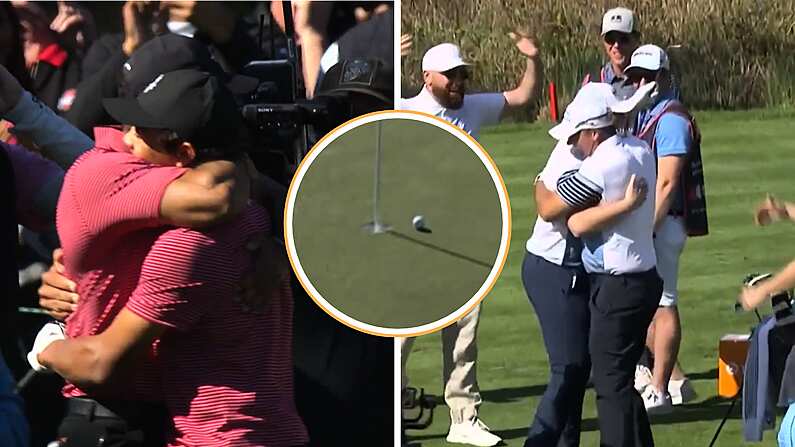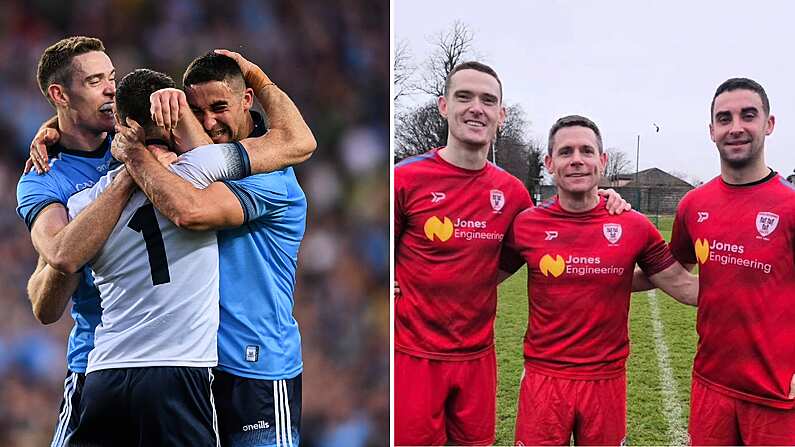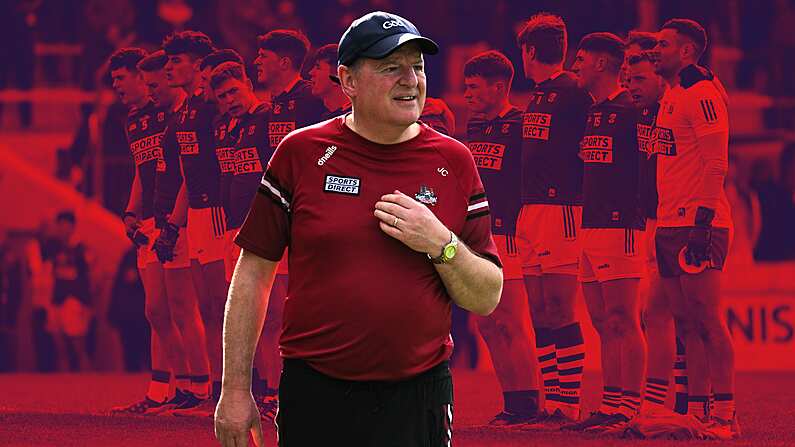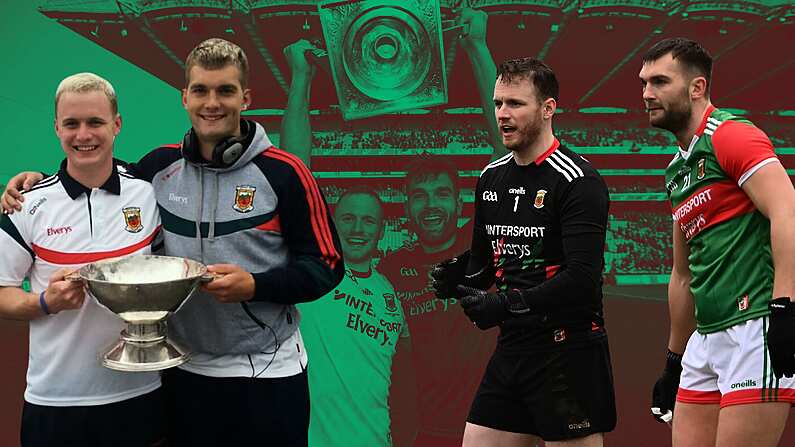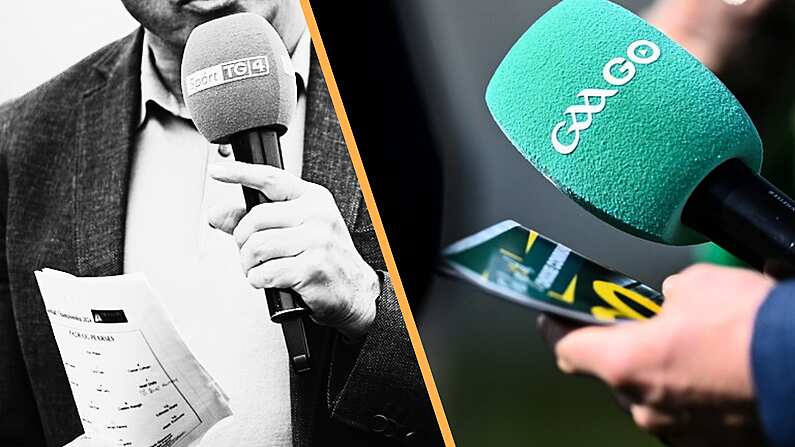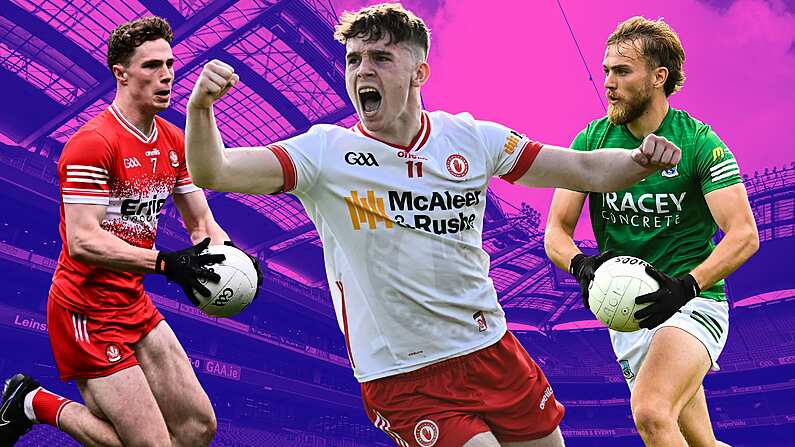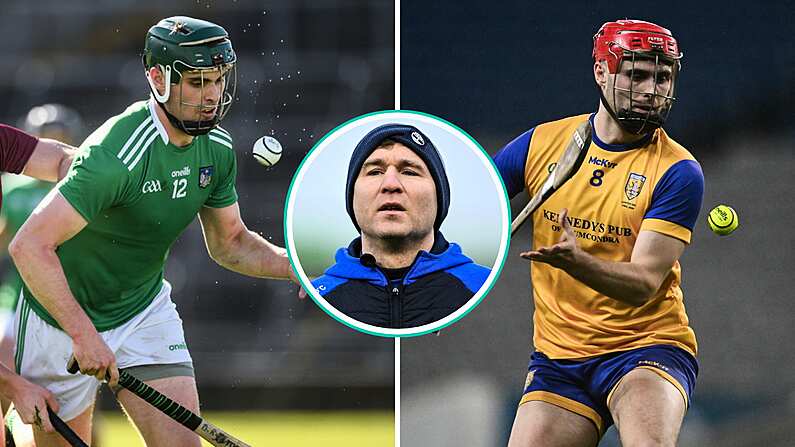In late 2013, Richie Power wasn't quite on the Kilkenny scrapheap but he was also a long way from Brian Cody's showroom.
The Carrickshock man, one of Cody's sharpest knives, had won six All-Ireland hurling titles by that time. He did so while hiding a spiralling gambling addiction.
"Richie would have been inconsistent sometimes when I marked him in training," Kilkenny teammate Jackie Tyrrell says in a new episode of TG4's Laochra Gael series, one which focuses on Power's career, and airs at 9:30pm on January 25th.
"Some nights, he came and you just knew 'I'm in trouble here tonight. This lad is going to do a number on me'. Then other nights, he's blasé.
"I kind of put it down to his personality. I didn't realise he was carrying baggage with him, the weight of the world was on his shoulders."
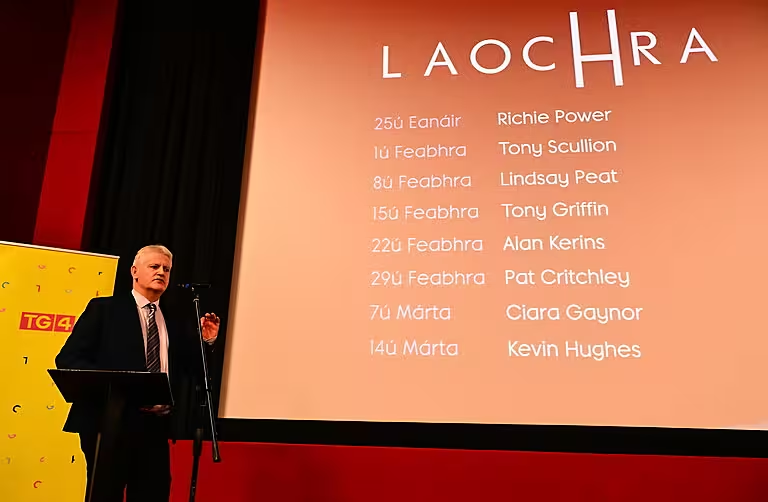
15 January 2024; Brian Tyers of TG4 speaking at the launch of TG4's award-winning Laochra Gael series at the Light House Cinema in Dublin as the Gaelic sport biography series returns for another season. Photo by Piaras Ó Mídheach/Sportsfile
Being on the pitch was an escape for Power but that route was blocked during a meeting with Kilkenny manager Cody in the week following the 2013 county hurling final, a game Carrickshock lost to Clara.
"I didn't really know what was coming," Power says during the show.
"It was put on the table in relation to the addiction that I had and it wasn't something that they wanted around the setup going forward in 2014.
"I was told that night that I wasn't part of their plans for the foreseeable future."
How the management team dealt with the situation comes across as cold.
"I suppose Brian and the management team were hearing stories off the field and maybe there were people relating to them how I was spending my time," Power explained during a video call on Monday when asked about the meeting.
"I had gone through an awful bad dip in form. That probably came into the decision as well. In relation to the off-field problems, there probably wasn't any help offered but they just felt that I needed to go and sort my off-field issues.
"Maybe by telling me that I wasn't part of their plans, it was going to give me that chance to concentrate on getting the help that I needed rather than trying to focus on doing both.
"Maybe they saw this as their way of helping. I don't know. I've never really had that real honest conversation with Brian. I think Jackie refers to it in the show as a bit of tough love, and maybe that's what I needed.
"Coming out of the meeting, it was quite raw at the time because we were after being beaten in the senior county final and, as a lot of people would do, you spend the week after drowning your sorrows.
"I was probably a little fragile at that stage. It was only on the Tuesday morning when I woke up that reality really hit me that this could be the end of my inter-county career."

27 October 2013; Austin Murphy, Clara, in action against Paddy Mulcahy and Richie Power, right, Carrickshock. Kilkenny County Senior Club Hurling Championship Final, Clara v Carrickshock, Nowlan Park, Kilkenny. Picture credit: Stephen McCarthy / SPORTSFILE
That week, Power came clean to his family. His secret was out.
"We made it very, very clear to him that he wasn't on his own in this and that we were going to help him and going to get it sorted," his father, Richie Power Senior, says during the Laochra Gael episode.
The father and son travelled to the Carrickdale Hotel near Dundalk where they met Oisín McConville. The former Armagh footballer had suffered from the same issue as Power and is now an addiction counsellor.
Fearing that his troubles might hit the headlines if he attended a rehabilitation clinic, Power instead got counselling through the Gaelic Players Association and attended Gamblers Anonymous meetings.
A chance meeting with Mickey Comerford, brother of eight-time All-Ireland winner Martin and now the strength and conditioning coach with the Kilkenny hurlers, aided his recovery from gambling and that of his inter-county career.
Comerford scheduled 6am training sessions to see if Power would turn up. He did. They did fitness tests in the car park of Hotel Kilkenny. Power excelled.

27 September 2014; Kilkenny's Richie Power with his son Rory celebrate after the game. GAA Hurling All Ireland Senior Championship Final Replay, Kilkenny v Tipperary. Croke Park, Dublin. Picture credit: Brendan Moran / SPORTSFILE
"Was the door shut in my face completely? No," Power said this week.
"I would have had contact with Derek Lyng over the course of the next few months. Derek would have been the only contact that I had.
"Once I started training with Mickey Comerford, things started to gradually improve. I was doing a lot of training, a lot of fitness tests on my own.
"Then it was a matter of proving myself to the lads that number one, I was dealing with my off-field issues, and number two, I was in a much better physical and mental state to get back involved with the team in 2014.
"Thankfully, that's how it transpired but it could easily have went the other way."
By the spring, Power was back in the Kilkenny panel. After suffering an injury setback during the Leinster championship, he returned for the All-Ireland semi-final on a rain-soaked day against Limerick.
In the All-Ireland final against Tipperary, Power was Kilkenny's most potent weapon. He scored 2-1 in the drawn game and 1-1 in the replay as Kilkenny won by three points.

6 September 2015; A dejected Galway goalkeeper Colm Callanan is consoled by Kilkenny's Richie Power after the game. GAA Hurling All-Ireland Senior Championship Final, Kilkenny v Galway, Croke Park, Dublin. Picture credit: Tomás Greally / SPORTSFILE
2014 had turned into a dream. 2015 was going to be a nightmare.
"January 2015 was the start of the worst year I've ever experienced mentally in relation to sport," Power says during the show.
"I picked up a knee injury in one of our first nights back training after the team holiday. Again, it was cartilage damage so I got keyhole surgery on that."
Power returned for the All-Ireland final against Galway, coming off the bench with 10 minutes to play. It was his final game for Kilkenny.
"Looking back to my first operation, I had it and I think I played in a colleges All-Ireland four or five weeks after keyhole surgery at 16 years of age," Power said this week.
"Maybe I shouldn't have. Being so young and naive, the leg felt well enough to get back and I played that game.
"From there on, I probably got a good eight to 10 years without having surgery. 2015 was just the one that really done it.
"I'd done my PCL in 2014 in the first round of the Leinster Championship against Galway, was able to continue training without the PCL.
"Then the first operation in January 2015, and then having four operations in 10 months in 2015 was what finished my career.
"What caused that, to this day, I'll never know. Maybe that's where the anger comes from. I don't know how you can be in someone's knee four times in 10 months and not see the damage that's there.
"If I'd been told at the beginning of 2015 to take 12 months, yes it would have been a very difficult decision to make, but if I was told it's going to prolong your career by seven - 10 years, it would have been an easy decision at that stage. I wasn't given that option, I wasn't told that.
"Whatever happened in my knee for those eight - 10 months, I'll never know and I'll never understand."

15 September 2003; Kilkenny manager Brian Cody and Kilkenny minor captain, Richie Power, with the Liam MacCarthy cup and the Irish Press Cup, Burlington Hotel, Dublin. Picture credit; Damien Eagers / SPORTSFILE *EDI*
In January 2016, Power announced that he would be retiring. He'd already told Cody.
"It was a nice conversation," says Power, "because I rang him and told him, ‘Look, I’ve exhausted every avenue, I’ve got three more opinions and unfortunately, that’s just the way it is'.
"He would have said in the phone call, there’s probably times where he would have been very hard on me.
"He just said 'The reason I was, was because I knew the potential was there and I knew there was more in you'.
"That was probably a nice thing to hear as well.
"It was a nice conversation and an honest conversation.
"When the phone was hung up that would have been it. That was the end of my inter-county career."

